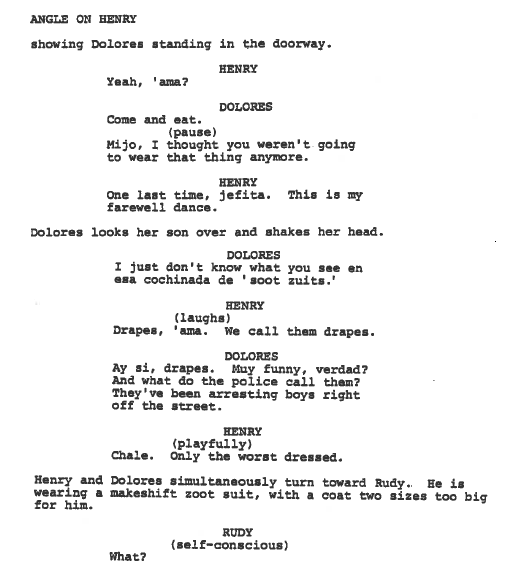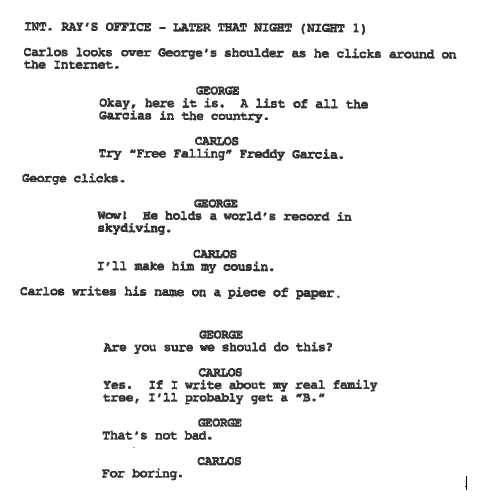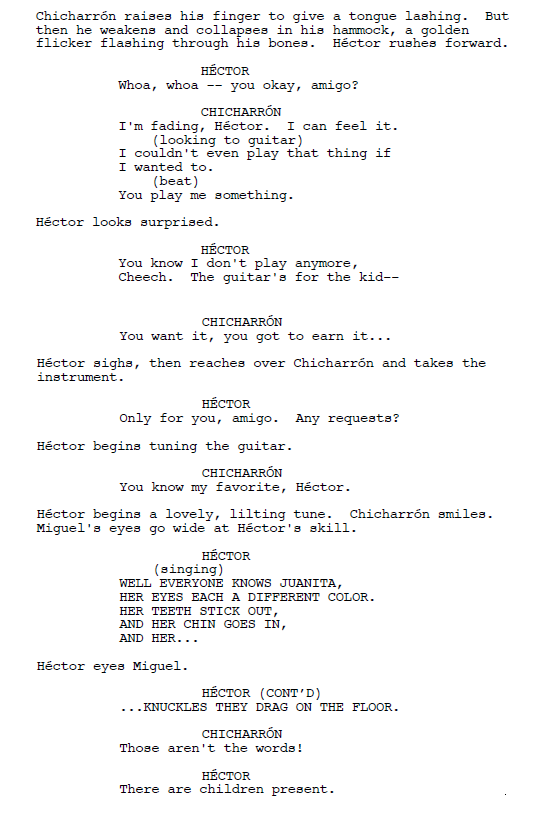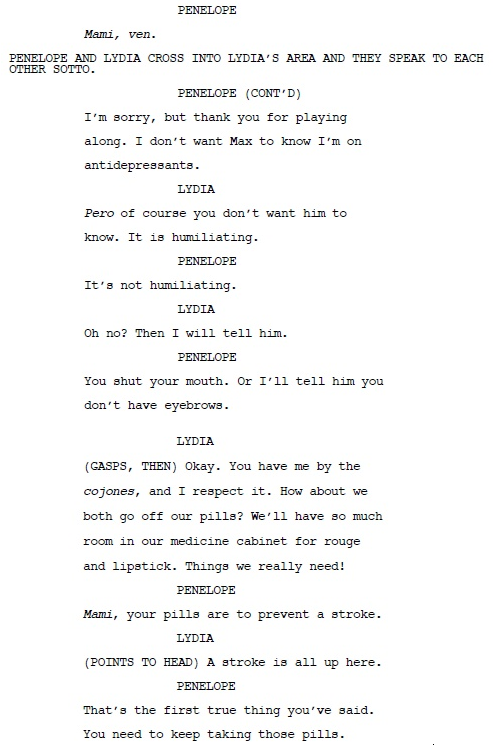Cinco Guiónes Que Recomendamos (Five Scripts We Recommend)
Who is my family? Where is "home"? Do I belong here? The best storytellers understand the universality of these questions and explore them in their narratives. This week in the library, I made it a mission to look at scripts grounded specifically in the experiences of Latinx characters. In my reading, I was delighted to discover many poignant stories centered around these precise themes: family, home and belonging.
Writers of any background are smart to read and champion stories by Latinx writers about the Latinx experience. Oftentimes, these narratives are road maps for finding heart, humor, and pride in your life and in the story you're trying to tell—no matter your background or how you identify yourself. With this in mind, here are five scripts to take a look at the next time you find yourself in the WGF Library:
ZOOT SUIT (1981)
Screenplay by Luis Valdez; Based on his original Play
Luis Valdez's play Zoot Suit, produced at the Winter Garden Theater in 1979, became the first Chicano play to run on Broadway. Based on the Sleepy Lagoon murder and trial of 1942 and the resultant Zoot Suit Riots of 1943 in Los Angeles, the story deals primarily with social injustice. It explores how the 38th Street Gang (led by semi-fictionalized protagonist Henry Reyna), finds the resolve within themselves to stand up and fight back against a corrupt and racist LA Police Department and Court System, which falsely convicts them of murder based on how they look and dress. Valdez's 1981 film adaptation of Zoot Suit uses theatrical techniques and magical realism (mostly bundled up in the mythical M.C. and story narrator “The Pachuco”) to bring the story to the screen. Despite the tough, dark, often depressing nature of the story, Valdez is a master at bringing in jokes and warmth to make all of his characters more human and relatable. This provides levity and makes the story more emotionally realistic, as evidenced by this scene where tough protagonist Henry shows a softer side, kidding around with his mother.
THE BROTHERS GARCIA (2000-2004)
“The Student Buddy” Written by Gary Rosenkrantz
Created by Jeff Valdez and Mike & Gibby Cevallos, this single-cam sitcom explores the middle school travails of three brothers and their sister living in San Antonio. Debuting on Nickelodeon in July of 2000 (In this librarian's opinion, a small heyday of coming-of-age television geared at pre-teens), The Brothers Garcia became known as the first sitcom to feature an all-Latinx principal cast. With the same kind eye and nostalgic voice-over narration that made The Wonder Years a great show in the late 1980s and early 90s, this show turns a loving lens on a Mexican-American family. I really enjoy this scene from episode "The Student Buddy," which was nominated for a Humanitas Prize in 2002. Like most middle-schoolers, when assigned a family tree project for history class, athletic older brother Carlos doesn't think his family is all that interesting and forges his project to be about "cooler" Garcias in history. But by the end of the episode, with help from his parents and brother George, he learns to take more ownership of who he is and where he comes from:
RAISING VICTOR VARGAS (2003)
Story by Peter Sollett & Eva Vives
Screenplay by Peter Sollett
Written by Peter Sollett, from a story developed with Eva Vives, Raising Victor Vargas is a warm, character and dialogue-driven comedy like something from the era of Katharine Hepburn and Spencer Tracy. But instead of looking at upper-crust (and often Eurocentric) society folks, this film takes it to the Lower East Side, focusing on Victor Vargas, an image-obsessed Dominican American teen, as he deals with his family and love life. Victor learns to take down his personal walls when he develops a friendship with Judy, the neighborhood girl who has to fight off harassers almost daily for how she looks. Over the course of his transformation, he comes to appreciate his family, including his 80-year-old grandmother, his smart-alecky sister and his innocent brother. All of it is brought to the page and screen with biting, tennis matches of streetwise banter like this:
COCO (2017)
Story by Lee Unkrich, Jason Katz, Matthew Aldrich, Adrian Molina
Screenplay by Adrian Molina and Matthew Aldrich
Yes, we all cried at this Disney/Pixar movie, and I think it has something to do with the universal fear of being forgotten or invisible to those we hold dear, like our families. This scene reminded me a bit of an old western film with a bunch of gauchos sitting around—far, far from home—in the knowledge that they've been left behind by the world. It’s in this moment, excerpted from the script, that we start to see Hector, heretofore a wishy-washy huckster, as a good guy. He stops to sing a song for essentially a dying dead man... In this way, he lets him know he's appreciated. Hector does this with characteristic goodwill and heart.... and whoops! I'm crying again.:
ONE DAY AT A TIME (2017-)
“Hello, Penelope”
Written by Michelle Badillo & Caroline Levich
As you can find in a number of places on this very blog, I think the 2017 re-imagining of the Norman Lear-produced One Day at a Time is the most essential television show of our era. Like many classic stage dramas (and multi-cam sitcoms), the show finds a single mother living with her windowed mother, her activist daughter, her smooth-talking son and, often, her eccentric, but sweet building manager. All of them form a big, unique Cuban-American family. With writing that elicits belly laughs and often heaving sobs, the show expertly posits how we can transcend our societal or domestic roles (and especially our personal flaws and struggles), to be there for one another. The banter between daughter Penelope and mother Lydia rivals any of the best Dorothy/Sophia scenes from The Golden Girls, as seen in this small excerpt from the Humanitas Prize-nominated episode "Hello, Penelope":
As always, search our catalog for more scripts here or stop into the WGF Library for a personal recommendation.





